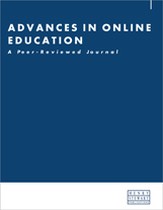A critical evaluation of the impact online education platforms can have on disadvantaged students at a post-16 secondary academy: A case analysis
Abstract
Disadvantaged students have underperformed in comparison to non-disadvantaged students,1 with the COVID-19 pandemic further widening this disparity.2 The case study in this paper (the multi-academy trust) therefore wanted to bridge the attainment gap through evaluating practical methods of raising achievement in the school’s post-16 disadvantaged student group, who were on average almost half a grade behind their counterparts in every subject. The authors initially investigated the use of online education platforms to supplement the learning of disadvantagedtt learners, with staff and students trialling each programme before a decision was made to purchase a suitable package. As a result of the recommendations by staff and students, funding was used from the UK Government’s 16–19 Tuition Fund bursary as well as the Uni Connect programme to purchase four platforms — Massolit, FutureLearn, Up Learn and SnapRevise — that students could access to improve their grades. By the end of the study, the disadvantaged cohort outperformed the non-disadvantaged learners by a third of a grade. The results were significant enough to suggest that the use of online education platforms was worth pursuing further, as the main output of the study resulted in an average grade of C+ being achieved by the disadvantaged cohort compared to the non-disadvantaged students’ average overall grade of C. The findings from this case study indicate that having a clear understanding of digital poverty, how it affects the student population and what measures can be put in place to provide an equal online learning environment for all is key to providing disadvantaged students with the opportunity to achieve in line with their peers. Forging successful relationships with all the stakeholders through training, effective monitoring and interventions can also maximise disadvantaged student achievement.
The full article is available to subscribers to this journal (subscription is free).
Author's Biography
Ben Eley has dedicated over 20 years to the field of secondary education, cultivating a rich career marked by diverse senior roles and a deep commitment to student development. Currently serving as the Head of Sixth Form, Ben is known for his exceptional leadership, mentoring skills and innovative approach to education. Ben is also a Fellow of The Institute of Leadership (FIoL). Ben’s journey into the realm of education began shortly after graduating from university, where he took on a role at KIT eLearning. There, he contributed to the development of Europe’s first online master’s degree programme in collaboration with the University of Liverpool. This early exposure to online learning ignited Ben’s enduring interest in integrating technology with traditional teaching methods to enhance educational outcomes. Under his leadership, the Sixth Form has seen remarkable improvements in student outcomes and engagement, with clear evidence of how blended learning has positively affected his students.
Jonathan Lord Dr Jonathan Lord is a Senior Lecturer in Human Resources Management (HRM) at Salford Business School. He has previously been a HR director, manager and consultant, working across all three sectors. Jonathan is a Chartered Fellow of the Chartered Institute of Personnel and Development (CIPD), a Senior Fellow of the Higher Education Academy, Member of the British Academy of Management and Industrial Law Society. His specialist research area focuses on improving workplace lives, concentrating on how this is governed as well as how the protection of workers has developed over many centuries. He has researched extensively around employment tribunals and their importance within the employment relationship.
Citation
Eley, Ben and Lord, Jonathan (2024, December 1). A critical evaluation of the impact online education platforms can have on disadvantaged students at a post-16 secondary academy: A case analysis. In the Advances in Online Education: A Peer-Reviewed Journal, Volume 3, Issue 2. https://doi.org/10.69554/PGRZ5357.Publications LLP
